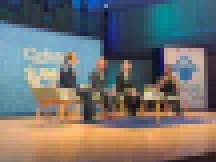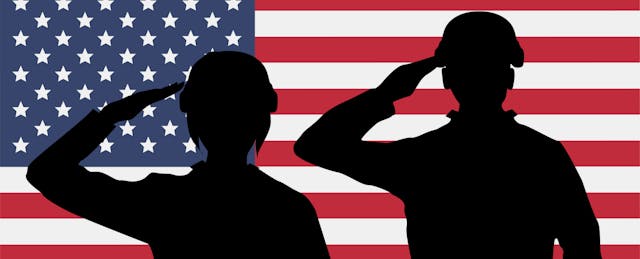As part of Cadet Camille Kaiser’s Junior ROTC program, the 16-year-old studies cybersecurity and cloud technology. She says the lessons have helped her develop not only job skills but also close friendships.
The sheer size of the U.S. JROTC program, coupled with relatively few computer science offerings, means Kaiser is one of the lucky few to access those courses, which she attends at Utah Military Academy near Salt Lake City. “The lack of opportunities that some kids have, it’s kind of tragic,” says Kaiser.
A new partnership between the Air Force’s JROTC program and the nonprofit CSforALL aims to increase the number of U.S. high school students in Advanced Placement computer science courses, which are high school classes that can earn students college credit.
The two groups discussed the partnership Wednesday during the CSforALL Summit in Salt Lake City. The project has a targeted spend of $1.5 million over three years.
More than 500,000 cadets at 3,400 high schools worldwide participate in JROTC programs from each military service, according to CSforALL. Yet only 32 percent of JROTC schools offered AP computer science principles in the 2018-2019 school year.

Though JROTC schools have included technology courses in the past, logistics have made widespread programming difficult, says Todd Taylor, Air Force JROTC chief of program development. While specific trial schools are not yet decided, the pilot will start with 30 high schools with JROTC programs. Then, the partnership will look at the outcomes. “It's going to take a lot of analytical work and it's going to take time,” he says.
The partnership will benefit more than just the military, says Taylor. More than half of JROTC students are people of color and 40 percent are female, two groups underrepresented in computer science courses. Not all JROTC cadets join the military and the additional classes should benefit non-JROTC students at participating schools.
Taylor says that the JROTC program has always tried to help students cultivate skills that lead to productive careers. A strong computer science curriculum is essential to staying current with a rapidly evolving technological world.
For Ruthe Farmer, chief evangelist at CSforALL, once the pilot is proven with Air Force JROTC students, she wants to scale it with other branches and get congressional support. “There's no reason why we wouldn't want to invite kids who are most likely to want to serve in federal service to be prepared for a technology-based future,” she says.


